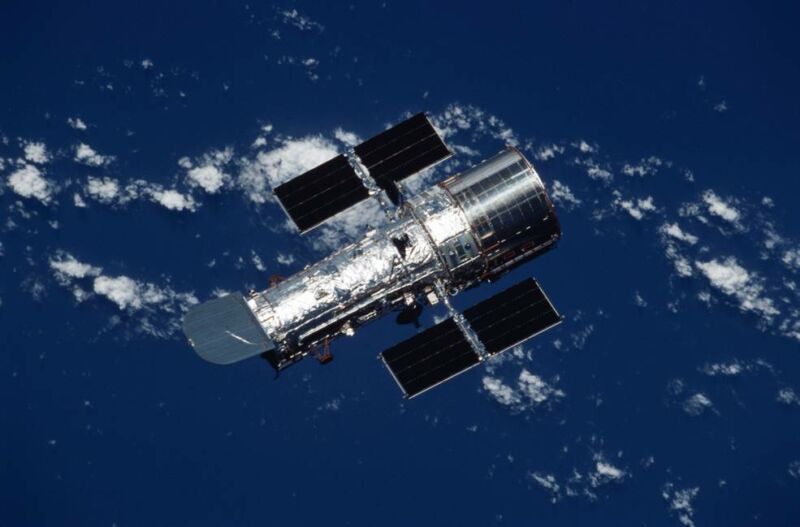In his final letter to shareholders as Amazon CEO, Jeff Bezos offers a novel — and profoundly disturbing — conception of value creation: a handful of visionaries are the sole source of all “real value.” This aristocracy mercifully blesses customers, clients, and even Amazon workers with social goods.

Jeff Bezos laughs as he participates in a discussion at the
Since readers of this magazine are not likely to be among the roughly 14 percent of Americans who actively buy and sell stocks, you may not be familiar with the spring ritual that is the CEO’s Letter to Shareholders. And if you are aware of the genre, you may be forgiven for never having paid much mind to what is, almost by definition, an exercise in cheerful banality; according to one recent survey, indeed, a mere 3 percent of CEO letters qualify as “worth reading.”
One of the handful of executives who fall into this small category is Amazon’s Jeff Bezos, whose annual musings have since 1997 consistently bucked the norm, so much so that business and thought leaders around the world have long mined his letters not only for actionable intelligence on Amazon’s prospects, but even more so for the gnomic bits of managerial and entrepreneurial wisdom he so generously dispenses.
Expectations for his most recent letter, issued on April 15, were unusually high. On the one hand the COVID-19 crisis and the recent union drive in Bessemer had brought extraordinary scrutiny down upon the company’s labor practices, and on the other, just as importantly, the 2021 edition would be his last, given his announced plans to step down as CEO, effective July 5. That Bezos does not disappoint is rather an understatement, for in this remarkable document we are provided with a rare glimpse into the recesses of the mind of this singular figure who has done so much to shape the world we inhabit.
Among the more curious aspects of our unhappy age is that so many of our contemporary tech titans appear to find little satisfaction in the unprecedented fortunes they have accumulated and the immense power that tends to follow such wealth. Instead they demand even more of our attention, often, as in the case with Bezos, by insisting on being taken seriously as thinkers, as men of great vision and bold ideas in the mold of Friedrich Nietzsche’s philosopher-artist-saint. For those of us who remain unpersuaded by this gesture, such exercises as Bezos’s final shareholder letter come off as rather pathetic, as incoherent patchworks of management speak dressed up as profundity.
Think here of John Cassavetes’s The Killing of a Chinese Bookie, in which the burlesque-club owner Cosmo Vitelli conceives of his productions as nothing less than serious works of stagecraft, always chafing at how his patrons can’t see the art for the flesh. That Bezos’s letter is characterized by its intellectual paucity, its ethical bankruptcy, its rhetorical clumsiness, is immediately evident to anyone outside the triumphalist bubble of the business and tech press. And yet we ignore it at our peril.Bezos seeks to portray Amazon as not merely a profit-generating machine, but also a fount of social goods that in the firm’s absence would never have materialized.
In the end it matters little that Bezos’s talents do not include the ability to express himself coherently and persuasively, for unlike Vitelli he possesses the financial resources and the political muscle to exert an almost incalculable influence over our lives, up to and including the very future direction of our species. However absurd it may seem, Bezos’s final shareholder letter demands the scrutiny of close reading and rigorous critique, for much indeed is at stake here.
In a document as filled with misrepresentations and rhetorical sleights of hand as the 2021 shareholder letter, we are going to need to pick and choose our quibbles; the analysis that follows, accordingly, is thus limited to the second and third sections of the text, for it is here that the author rises far up above the pablum typical of the genre.
It is customary for the CEO to offer a summary of the firm’s performance in the previous year, with emphasis on profit, the figure in which shareholders are most if not exclusively interested. Bezos, however, gives us much more, indeed a careful if rather questionable accounting of the “total value” created by Amazon in 2020, which he estimates at no less than $301 billion, only $21 billion of which, he stresses, constitutes net income. For a full measure of the company’s impact on the economy, we must add to this the $25 billion paid out to third-party sellers; the $91 billion dispersed in salaries, wages, and benefits; and the $164 billion in time-savings and increased efficiency provided to Prime members and Amazon Web Services (AWS) clients.
His intent is clear: to portray Amazon as not merely a profit-generating machine, but also a fount of social goods that in the firm’s absence would never have materialized.
Thus in the commentary following the “total value” table, Bezos, perhaps unwittingly, provides us with nothing less than a full-blown theory of value. Of the $301 billion, he says:
These numbers are part of the reason why people come to work for us, why sellers sell through us, and why customers buy from us. We create value for them. And this value is not a zero-sum game. It is not just moving money from one pocket to another. Draw the box big around all of society, and you’ll find that invention is the root of all real value creation. And value created is best thought of as a metric for innovation.
On the surface there is nothing controversial about this, especially since mainstream economists have long taken it as an article of faith that “value created tracks with innovation,” or, more commonly, that “innovation drives growth.” But Bezos says far more, insisting that “invention” is the ultimate source of all value — or at least his curious conception of “real value.”
What precisely he means by “real value” remains unclear, but there might be clues in the history of political economy, for the odor of the Austrian School, and particularly of Friedrich von Hayek, is strong here. As Corey Robin has argued, the Marginal Revolution of the late nineteenth century was motivated principally by dissatisfaction with the old labor theory value, which animated not just Karl Marx and the broader socialist movement, but the Classical School of Adam Smith and David Ricardo. At its heart, marginalism was the effort to recenter our understanding of economic life on the figure of the consumer rather than, as had been the case for a century, the worker.
While there is nothing inherently reactionary or conservative in this gesture, later marginalists, specifically those who emerged out of fin de siècle Vienna — Ludwig von Mises, Joseph Schumpeter, Hayek — would self-consciously employ the doctrine as a means to beat back the rising assertiveness of ordinary workers, who as Robin notes increasingly saw themselves as “the centerpiece of modern civilization” and the primary motor of not only “the economy but culture and society as well.”
It was Hayek who took this furthest, effectively inverting the social-democratic understanding of Marginalism, according to which it was “the worker — in his capacity as consumer — who gave value to capital.” For Hayek and the Austrians, in absolute contrast, it is capital that provides value to labor; indeed the figure of the man of capital, previously the model of sober rationality, is recast as nothing less than a promethean visionary, as a “heroic legislator value” possessed of the intuitive capacity to sense the dim outlines of the not-yet and the force of will to make it reality. When Bezos reminds us that Amazon executives “live in the future,” he is calling back to this older conception of the men of capital as a kind of benevolent aristocracy, as creators of “real value” of which all us ordinary souls are the ungrateful beneficiaries.
That Bezos sees himself and his colleagues as a new form of aristocracy is evident in his curious employment of the first-person plural pronoun, as in the above excerpt, in which he claims that “people work for us” because “we create value for them” and that “we need a better vision for how to create value for employees – a vision for their success.”
What this suggests is Bezos does not consider the hundreds of thousands of hourly employees and contractors who pick and pack and deliver the goods to play any significant role in the creation of “real value.” It is rather the prerogative of “we” the “inventors” up in the C-suite or over in the R&D lab. Mere “employees” are hardly different from the customers, clients, and third-party sellers; the only significant distinction is that rather than providing goods and services for a fee, we provide you with a living in exchange for your labor.It is customary for the CEO to devote at least a token paragraph of the shareholder letter to acknowledging that the employees constitute the heart and the soul of the firm. But this Bezos cannot bring himself to do.
While it is not uncommon for those atop the commanding heights of the capitalist economy to harbor such views, it is unusual to state them so openly, so brazenly. It is indeed customary that the CEO devotes at least a token paragraph of the shareholder letter to acknowledging that the employees constitute the heart and the soul of the firm, that they are its greatest asset, that nothing would be possible without them.
But this Bezos cannot bring himself to do, even in the wake of intensifying scrutiny of his firm’s abysmal labor record. After the firing and the defamation of rank-and-file organizer Christian Smalls, after the headlines about workers’ inability to use restrooms while on the clock, and after the millions lavished on beating back the union challenge in Bessemer, the smallest gesture, the mere acknowledgement that no packages would have arrived at doorsteps without the toil of hundreds of thousands of human beings, might very well have gone a long way.
Bezos’s reticence in this respect is all the more galling given that of the Big Five tech firms, Amazon is by far the most “traditional.” Facebook, Google, and Microsoft produce few if any material goods; Apple most certainly does, but its production has largely been outsourced to the Global South, far away from the prying eyes of meddling US labor unions and journalists.
Amazon is something wholly different. It arguably should not be considered a tech company, but rather a logistics giant, an online emporium hardly distinct from eBay, and, with the establishment of AWS, a utility. Its fulfillment centers dot the deindustrialized landscape of America’s hinterlands, and its dark-blue vans are everywhere, their hard-pressed drivers emerging at breakneck pace in the increasingly vain effort to make quota.
In one of the more disingenuous passages in his letter, Bezos notes that “we’re also proud of the fact that Amazon is a company that does more than create jobs for computer scientists and people with advanced degrees. We create jobs for people who never got that advantage.” This conveniently conceals the fact that the majority of Amazon employees are engaged in fulfillment and delivery, and that the disparity between the “advantaged” and the “disadvantaged” increases dramatically when we account for the multitudes of seasonal temps and the so-called “independent contractors” who drive the vans.
It also inflates one of the more insidious myths of meritocracy: the patently absurd suggestion that if only we can live up to our ideals, if only we might provide an advanced degree to all, then somehow the demand for toil in the fulfillment centers and out on the roads would mysteriously vanish. There may have been a moment when Amazon.com really was a scrappy upstart dream, a small handful of brilliant and highly educated dreamers out to change the world. But that moment passed long ago; what the company predominately is now, and has been for a long time, is a globe-spanning logistics empire. The hundreds of thousands of pickers and packers and drivers are the company, no matter how distasteful this is to its founder.When Bezos reminds us that Amazon executives ‘live in the future,’ he is harking back to an older conception of the men of capital as a kind of benevolent aristocracy.

That Bezos is profoundly uneasy about what his company has become is clearly evident in the painfully awkward third section of the letter, in which he responds to the torrent of recent bad press on his company’s abysmal record of workplace injuries. At the very least he is compelled to reassure the shareholders that senior leadership is aware of the issues and is taking appropriate measures for their remedy.
But as always he does much more than expected, although unsurprisingly he cannot be moved to offer up any sort of apology for the well-documented fact that Amazon warehouse employees suffer serious injury at more than twice the rate of the industry average. Instead he returns to the curious logic of “real value,” implicitly conceding that the “company” has failed to serve its “employees” with the same obsessiveness it has lavished on its customers. But this is soon to change:
In my upcoming role as Executive Chair, I’m going to focus on new initiatives. I’m an inventor. It’s what I enjoy and what I do best. It’s where I create the most value. I’m excited to work alongside the large team of passionate people we have in ops and help invent in this arena of Earth’s Best Employer and Earth’s Safest Place to Work. We have never failed when we set our minds to something, and we’re not going to fail at this either.
Let us pass over the astounding effrontery of all this, the baronial refusal to acknowledge that workers themselves might have some insight into their own well-being, might have some role to play here. Instead we get that signal feature of contemporary techno-capitalist thinking, the insistence that whatever the problem, the best solution is “innovation.”
Much of the negative press coverage this past year, for example, concerned the scandalous rate of musculoskeletal disorders (MSDs) among Amazon workers. While Bezos does acknowledge the problem, he does so at the noticeable expense of pronoun discipline, remarking that “MSDs are common in the type of work that we do,” as if he himself is not above occasionally taking a place on the packaging line.
Now that he and his team are on the problem, however, it is surely only a matter of time before novel techniques, such as last year’s WorkingWell program and the more recent, much-lampooned AmaZen initiative, will begin to whittle down the numbers; indeed, Bezos proudly notes, the company’s efforts already reduced the rate by 32 percent between 2019 and 2020.
These comments would seem to suggest that the thousands of “safety professionals” employed by the company are at the very bleeding edge of MSD mitigation, that just as Amazon previously “led the way on wages,” they now do the same with respect to workplace injuries. The typical reader of the letter might very well be led to believe that MSDs are something new.
The truth, however, is that the condition has been a part of established scientific consensus for more than three decades; modest OSHA regulations for ergonomic health were first proposed during the Clinton administration and appeared well on their way to becoming law, before a furious Chamber of Commerce lobbying campaign and the election of George W. Bush put them to bed for good.
OSHA’s voluntary guidelines, however, are readily available, and Amazon could very well have “led” on the issue by implementing them, by employing their much-celebrated capacity for innovation toward the design of a work environment optimized for worker health. Instead, as has been widely covered in recent years, they did the precise opposite, developing novel techniques for the extraction of labor from the human body not seen since the high tide of Taylorism a century ago.
As Will Evans described in his Reveal expose last September, Amazon’s safety crisis reached peak intensity in the years after the introduction of robots into its warehouses in 2014. At least nominally intended to reduce the stress on workers’ bodies, the robots instead dramatically increased the injury rates — they are simply too efficient, the human body incapable of keeping up with them without serious health risks.
Amazon’s internal records, which were inspected by Evans, show that the company’s safety experts were aware of this almost immediately, and as early as December 2015 it caught the attention of OSHA, which issued a sternly worded hazard letter specifically linking the robots to a long series of ergonomic risk factors. All of this was roundly ignored by the company, as the ops department, aided and abetted by the “safety professionals,” continued to tighten the screws, the injury rate steadily climbing, year after year, until finally the damage to the company’s reputation became too costly.The ‘passionate people’ now committed to remaking Amazon as Earth’s Safest Place to Work are the very same people who knowingly made it among the world’s more unsafe.
It’s still too early to judge the results of WorkingWell and AmaZen, but there is every reason to be skeptical; the “passionate people” now committed to remaking Amazon as Earth’s Safest Place to Work are, after all, the very same people who knowingly made it among the world’s more unsafe.
In one of Donald Trump’s more memorable bits from the 2016 campaign, he often suggested that since he had been paying off politicians for decades, no one was more qualified to put an end to political corruption. Bezos’s promise to innovate his way out of a crisis directly resulting from the company’s own innovation rings similarly hollow.
Arguably the last thing Amazon’s hundreds of thousands of workers need is more innovation; indeed, as Dania Rajendra has argued, the company’s much-praised reinvention of the warehouse and delivery sectors is better understood as the revival of once-discredited labor practices: the company town, Taylorist surveillance, churn and burn.
Our nineteenth- and twentieth-century ancestors, we must always remind ourselves, found such conditions intolerable. They began to organize themselves, to fight back against capital with whatever meager means at hand, and gradually they won for us, at least for a brief moment, a brighter world.
Bezos and his like among the new aristocracy of capital seek to take that away from us, to return to a far uglier, far crueler mode of being in the world, in which we ordinary souls constitute so much human clay to be molded and used up by those few who know better, who indeed are better. We must not allow them to succeed.
ABOUT THE AUTHOR
William Banks is a writer, editor, and translator. His latest book, Brandes contra Høffding: Nietzsche, Individual Greatness and the Welfare Society, is forthcoming in 2022.
Alex N. Press is a staff writer at Jacobin. Her writing has appeared in the Washington Post, Vox, the Nation, and n+1, among other places.










